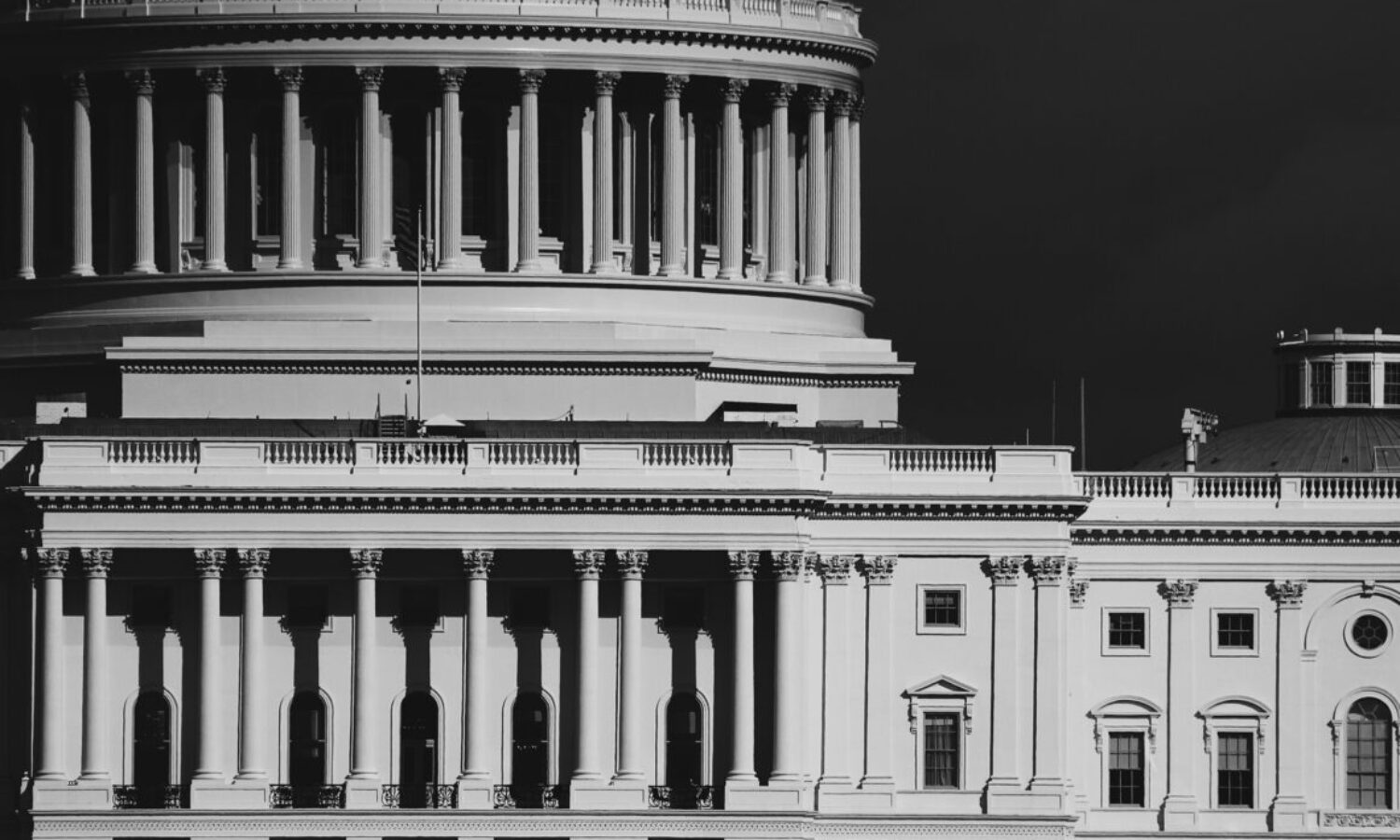i2Coalition Feb. 2022 Legislative Brief
Your brief update on important Internet policy issues
OUTLOOK
The U.S. federal government averted a shutdown following the Senate passage of a continuing resolution in February to extend funding. Congress will work toward the completion of a FY2022 appropriations package before March 11 when the current government funding extension expires. The Senate Judiciary Committee and the Senate Democrat leadership are focused on the confirmation process for President Biden’s Supreme Court nominee and plan to seek a floor vote in April. The ability of the Biden Administration and Congressional Democrats to revive parts of the President’s failed Build Back Better bill and to focus more resources on other domestic priorities is uncertain. Russia’s invasion of Ukraine on February 24 has forced an immediate shift in attention to foreign policy and new threats this war poses for the global economy, which is still recovering from the onslaught of the coronavirus pandemic two years ago.
TECH POLICY PRIORITIES
Section 230/Intermediary Liability
While there is continued interest in reforming Section 230 to increase the accountability and transparency of large online platforms, Republicans and Democrats in Congress have not reached bipartisan agreement on a path forward. However, reforming Section 230 to protect children online garners significant support. A bipartisan majority of the Senate Judiciary Committee members approved the re-introduced EARN IT Act (S. 3538) at a February markup session. Changes to the bill text are expected before it can be voted on by the full Senate. The House version of the EARN IT Act is pending before three committees. The EARN IT Act would establish a national commission to recommend best practices and technical solutions for combating online child sexual abuse material (CSAM). It would also carve out from the Section 230 liability shield federal civil and state civil and criminal actions for CSAM distribution. The bill provides that in legal actions, the use of encryption may be considered as one of the factors in assessing conduct. A wide range of civil society and technology associations oppose the bill, stating, among other things, that the bill jeopardizes online security by threatening the use of strong encryption and violates privacy and free speech rights.
Federal Privacy
Neither the House nor Senate have reached bipartisan consensus on comprehensive federal consumer data privacy legislation. Officials in the U.S. and EU continue negotiations on a replacement for the Privacy Shield for cross-border data flows with some hope that an agreement can be reached this spring. Protection of children online is a bipartisan priority and could see further action this year. On February 16, Senators Richard Blumenthal (D-CT) and Marsha Blackburn (R-TN) introduced their long-anticipated Kids’ Online Safety Act (S. 3663) which states that “covered platforms” have a duty to prevent and mitigate the risks of minors being exposed to certain harms and would require platforms to put specific safeguards in place. It would also allow parents to opt their children out of algorithmic recommendation systems that use a minor’s personal data.
Copyright/IP
Stakeholder discussions continue with staff for Senate Judiciary IP Subcommittee Ranking Member Thom Tillis (R-NC) about possible legislation to combat large-scale online commercial piracy. On February 22, the Copyright Office launched public consultations about the role of technology and technical measures in addressing Internet piracy, and additional topic-specific sessions with stakeholders will continue in the spring.
Antitrust/Competition
Both the House Judiciary and Senate Judiciary Committees have passed antitrust bills intended to address alleged anticompetitive actions by large technology firms including Google, Apple, Meta (Facebook), and Amazon. Most recently in the Senate these include the Open Markets App Act (S. 2710) and the American Innovation and Choice Online Act (S. 2992). Last June the House Judiciary Committee passed six antitrust bills after a marathon markup session. Prospects for floor action on these bills in either the House or Senate are unclear given a variety of factors, including the opposition campaigns by the large tech companies and the limitations of the legislative calendar in this midterm election year.
Broadband
At a Feb. 16 oversight hearing, NTIA Administrator Alan Davidson testified before the House Energy & Committee Subcommittee on Communications and Technology to outline NTIA’s plans and goals for implementing the broadband deployment provisions of the Infrastructure Investment and Jobs Act ( IIJA) which provides $48.2 billion to be administered by NTIA. The FCC continues to work on production of an updated national broadband map which is considered a key step required ahead of the disbursement of broadband funding from the IIJA. FCC Commissioner nominee Gigi Sohn appeared before the Senate Commerce Committee for a second hearing on Feb. 9. The Senate Commerce Committee votes on her confirmation and that of FTC nominee Alvaro Bedoya were delayed as a result of the absence of Sen. Lujan (D-NM) who is recovering from an illness.
Find out more…
For more in-depth updates on Internet policy including issues that specifically impact your organization, please contact us about joining the i2Coalition.

